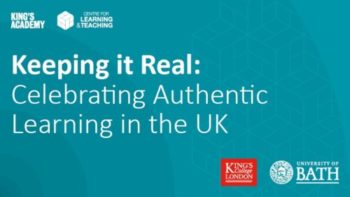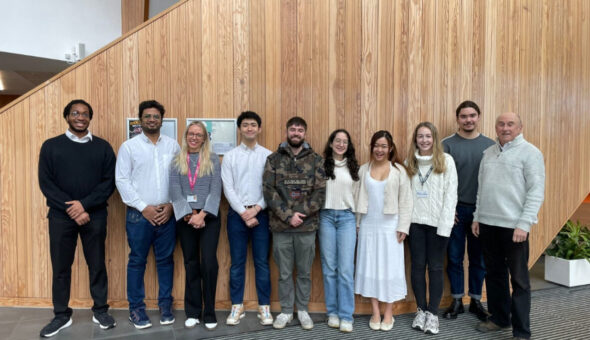On the surface, the idea of developing authentic learning in university settings will be attractive to many colleagues. Done well, this approach will enable students to bring their learning to life, to apply the knowledge that they have gleaned from their course in new and exciting situations.
In contrast to those modes of learning where the student is sedentary and inert, waiting patiently for knowledge to be transmitted from the academic experts, authentic learning describes processes where students create solutions, answers and interventions themselves. Learning in real world environments, or addressing challenges set by those beyond the campus walls, can help students to make sense of the knowledge that is presented to them, understand its relevance and communicate it effectively to others. Settings where students are granted agency, and can affect the world around them, can create a sense of purpose and accountability. They also help students move from bystander to actor, from ‘lurker’ to contributor and from the periphery to the centre. Rather than being mere consumers of knowledge, this is where students can become producers.
Proponents of these approaches point to heightened student engagement and the potential to develop C21st skills as key benefits, but another important feature of authentic learning is mutuality. Successful work in this realm relies on effective partnerships often with external organisations, so ensuring that all parties benefit equally from these innovations is critical if innovations are to be sustained in the long term.
These processes are not without their challenges. Who, for example, should take responsibility for these partnerships? How can these relationships be best developed and maintained? How does an individual academic move from some initial authenticity – say, a single session with a guest speaker – to a more strategic approach, where a whole module or course is delivered in this mode? How can one overcome scepticism if other colleagues are reluctant to support such new ways of thinking?
Next week, as part of a unique collaboration with King's College London, we’ll be joined by colleagues from across the UK who are keen to share their authentic learning experience and address these questions.
On Monday 25th January, we kick off the authentic learning debate with a Tweetchat. Join us from 12:30 to 13:00 in the Twittersphere by following the hashtag #AuthenticLearningChat. If you don’t have a twitter account, you can still take part. Just search, read & reflect on tweets with the hashtag #AuthenticLearningChat.
Then on Friday 29th January the Centre for Learning & Teaching and King's Academy, King's College London, are co-hosting a national online conference, 'Keeping it Real: celebrating authentic learning in the UK', with speakers from a wide range of institutions and disciplines. Find out more about 'Keeping It Real' and register to attend.
We hope you can join us at one or both of these events to find out more about the benefits and challenges of authentic learning in universities.
Dr Andy Pitchford, Centre for Learning & Teaching
Follow us on Twitter! @clt_bath
Respond



